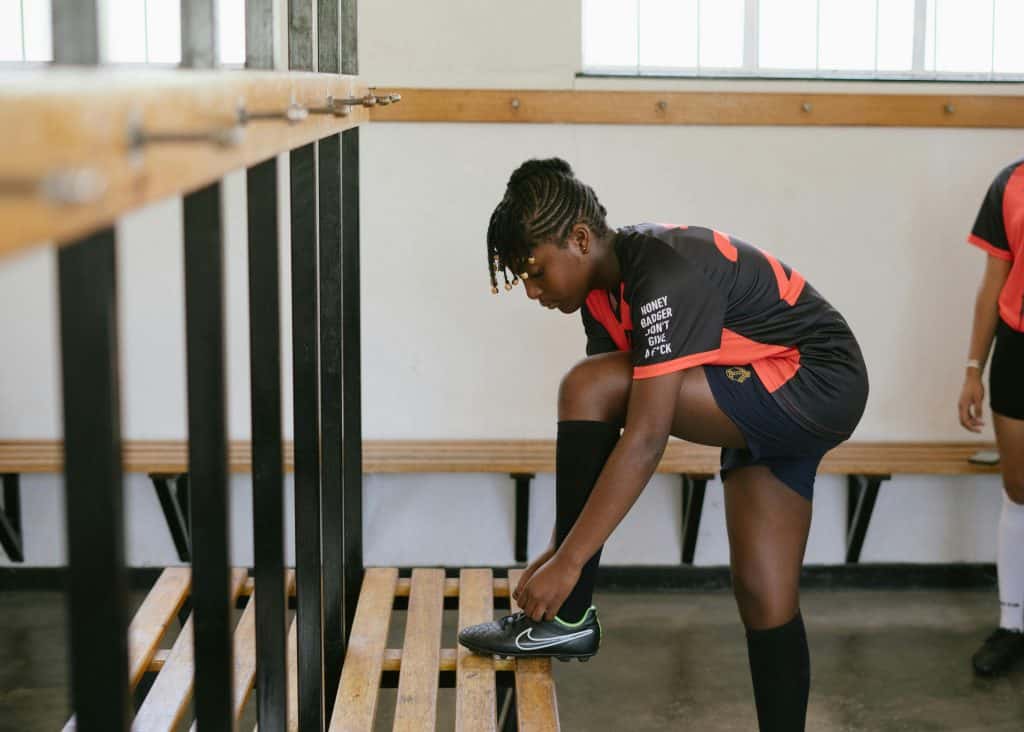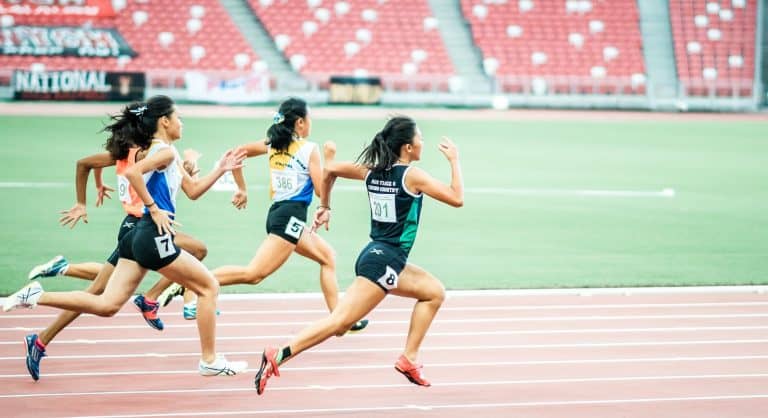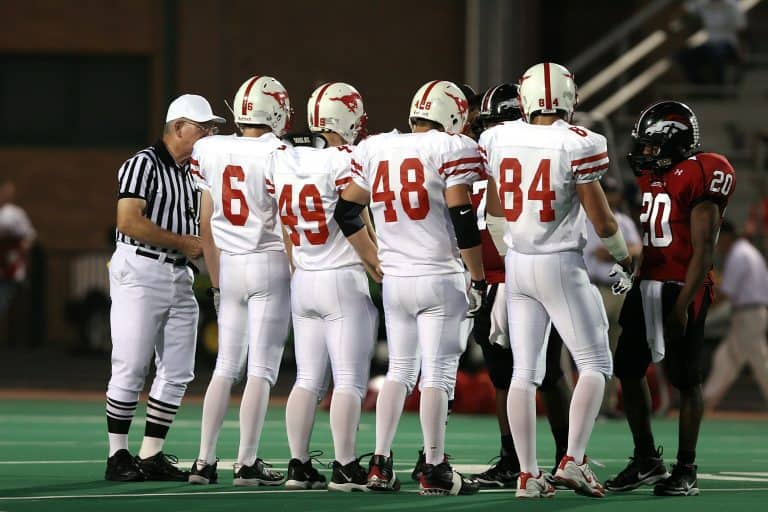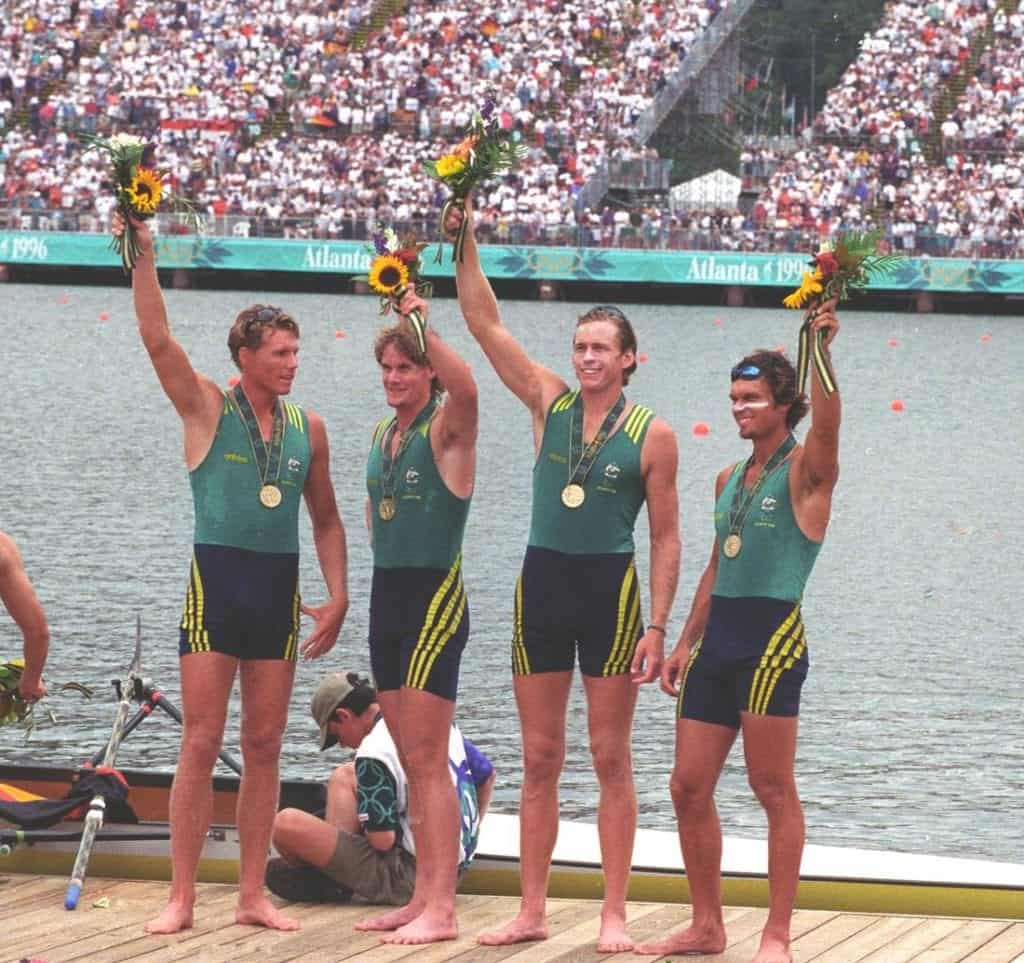Student-athletes are often admired for their dedication, discipline, and competitive spirit on the field, court, or track. But beyond exhilarating moments of victory and defeat, lie enduring lessons that extend beyond the competitive sporting arena.
Specifically, a 2020 study conducted by Ernst & Young and espnW found that 94% of female executives in C-suite positions have a background in sport, with more than half having competed at the collegiate level. In the same year, Gallup, also undertook a study titled, ‘A Study of NCAA Student-Athletes: Undergraduate Experiences and Post-College Outcomes’, which reported that former student-athletes are more likely to be employed full-time and report higher levels of engagement at work compared to their non-athlete peers.
Undoubtedly, all evidence points to the same conclusion: the skills honed through their sporting pursuits are invaluable assets for shaping a student-athlete’s future career endeavors. So, what are these skills specifically? In this article we uncover eight transferable skills and lessons student-athletes can take from their time in sport to pave their pathway into whatever comes next.
#8 Dedication to Planning & Goal Setting
Student-athletes learn early on the importance of setting clear, achievable goals and developing detailed plans to reach them. This discipline helps in organizing and prioritizing tasks, whether they are training for a big game or preparing for exams. Research published in the Journal of Applied Sport Psychology by Bird, et al., (2023) highlights how goal setting in sports enhances athletes’ performance by providing direction, increasing motivation, and improving persistence.
Furthermore, a study by Healy, et al., (2018) indicates that student-athletes who are adept at goal setting and planning are more successful in their transition to professional careers, as these skills are directly transferable to workplace settings. By setting short-term and long-term goals, student-athletes can map out a path to success and make adjustments as needed, ensuring continuous progress. This skill is invaluable in both academic and professional settings, where strategic planning and goal setting are crucial for achieving desired outcomes and advancing in one’s career.
#7 Time Management under Pressure
Between balancing practices, games, academic responsibilities, and personal life, the rigorous schedules and dual roles of student-athletes requires them to be able to prioritize and use their time effectively. A study from the Journal of Occupational and Organizational Psychology by Macquet and Skalej (2015) found that these time management skills are critical for professional success, as they enable former student-athletes to manage multiple projects, meet tight deadlines in the workplace, and maintain productivity even in high-pressure situations; making them adept at thriving in fast-paced environments.
#6 Mental Toughness & Resilience
Student-athletes often face intense physical and mental challenges, developing a strong sense of resilience and mental toughness in the process. This ability to withstand pressure, bounce back from setbacks or injury, and maintain focus on long-term goals translates seamlessly into the academic and professional realms. A study in the European Journal of Sport Science conducted by Crust and Azadi (2010) found that mental toughness is a significant predictor of coping strategies and resilience among athletes.
Additionally, research published by McKnight, et al., (2009) on ‘Life After Sport: Athletic Career Transition and Transferable Skills’, suggests that former student-athletes exhibit higher levels of resilience and adaptability in professional careers, enabling them to handle workplace stress and navigate career obstacles more effectively. In studies, it helps students persist through difficult coursework and maintain motivation despite setbacks. In careers, resilience enables professionals to handle workplace stress, navigate career obstacles, and continuously strive for improvement, making them valuable assets to any team.
Mental Toughness is a skill that can be taught, in fact, Founder of Athlete Assessments and 4x Olympian, Bo Hanson, created the ATHLETE TOUGH Program to do just that. Written by an athlete for athletes – the program contains useful, relevant, and PROVEN strategies on how to be mentally tough and resilient.
#5 Able to Look to Others for Expertise
Athletes routinely seek guidance from coaches, trainers, and more experienced teammates, learning to value and defer to expertise. This humility and willingness to learn from others are critical in academic and career settings. Research from the International Journal of Sport Psychology by Bloom et al (1998) shows that athletes who engage with mentors and experts gain valuable insights and skills, enhancing their performance and career prospects. Additionally, the High-Reliability Organization (HRO) model, which emphasizes the importance of ‘deference to expertise,’ provides a valuable framework for understanding this principle. According to the HRO model, ‘deference to expertise’ involves recognizing and relying on the most knowledgeable individuals in a given situation, regardless of their formal rank or position (Jacobson, 2024).
A study within the Harvard Business School by Layne (2024) suggested that former student-athletes who actively seek and leverage expert advice tend to advance more quickly in their careers, as they benefit from the accumulated knowledge and experience of their mentors. This principle of deferring to expertise ensures that decisions are informed by the most relevant and accurate information available, enhancing problem-solving and innovation. Recognizing the value of mentorship and expert advice can accelerate learning and professional development. In the workplace, being able to identify and collaborate with subject matter experts enhances problem-solving capabilities and fosters a culture of continuous learning and improvement.
#4 Teamwork and Collaboration
Whether competing in individual or team sport, success often hinges on effective relationships being built outside of competition. Whether with teammates, coaches, trainers, or other critical supporters; student-athletes learn to communicate and collaborate with others, to work towards achieving a common goal.
In an Ernst & Young Study on, ‘Why Female Athletes Make Winning Entrepreneurs’, researchers interviewed women entrepreneurs globally who had actively participated in collegiate sport. Specifically, the report noted, “The athlete entrepreneurs explain that playing sport has given them a strong grounding in what it means to be on a team — on both practical and emotional levels. And they are using that sports mindset to establish the high-performing teams required to grow their companies.”
We can see these skills translate immediately within the college environment, into academic group projects and building relationships with professors and other leaders. Then, by the time they enter the workplace, student-athletes have an advantage with their ability to work within team-based environments as they understand the importance of valuing others and prioritizing what is best for the team over individual achievements.
Many coaches and universities also utilize tools to support their student-athletes in developing an awareness of themselves and those around them, to build better communication and stronger relationships. Athlete Assessments’ DISC Profiles, build a foundation of self-awareness which can then be applied to understanding others, valuing similarities and differences, and building leadership.
#3 Ability to Have Difficult Conversations
Sporting environments often require athletes to engage in difficult conversations, whether it’s providing constructive feedback to teammates, discussing performance issues with coaches, or resolving conflicts. Learning to communicate effectively, listen actively, and address issues directly helps build strong interpersonal skills. According to a study by Oh (2023), effective communication and conflict resolution are crucial components of team cohesion and performance. Additionally, various research indicates that the ability to have difficult conversations is a key skill that former student-athletes bring to the workplace, helping them to navigate challenging interpersonal dynamics and enhance team collaboration. These skills are transferable to academic and professional settings, where being able to navigate tough conversations with peers, professors, colleagues, or supervisors is essential for resolving conflicts, building relationships, and fostering a collaborative atmosphere.
#2 Situational Leadership & Adaptability
Student-athletes often assume leadership roles within their teams, whether as captains, mentors, or role models. These experiences cultivate leadership qualities such as effective communication, decision-making, and inspiring others. In academic settings and professional environments, these leadership skills enable student-athletes to influence and motivate their peers, collaborate on projects, and take on leadership positions that drive positive change. A 2017 study published by Mak and Kim in Human Kinetics examined the impact of athletic participation on students’ leadership skills. The findings revealed that student-athletes significantly outperformed non-athletes in overall transformational leadership. Notably, they excelled in two key aspects of transformational leadership: self-management (encompassing self-attitude and concern for others’ well-being) and emotional management (including the ability to motivate colleagues and instil feelings of competence and purpose in their work).
#1 Ability to be Physically Present in Today’s Digital World
In an era dominated by digital interactions, the ability to be physically present and engage in face-to-face communication is increasingly valuable. Student-athletes, accustomed to in-person practices, games, and team meetings, understand the importance of physical presence in building relationships, trust, and effective communication. Grossman (2022) highlights the benefits of face-to-face interactions in building stronger, more effective teams. Moreover, Sellers et al (2023) suggest that former student-athletes excel in environments that require strong interpersonal skills and the ability to engage effectively in both digital and physical spaces, making them versatile and effective communicators in the modern workplace. This skill translates into academic group work and professional settings where personal interactions are crucial for networking, teamwork, and leadership. Being physically present helps in creating meaningful connections and understanding nuanced communication, which can be lost in digital-only interactions.
Ultimately, student-athletes acquire a unique set of skills through their athletics involvement that translate effectively into academic and professional careers after sport. In developing and refining these skills, DISC Behavioral Profiling proves to be influential, as provides the opportunity to enhance self-awareness, better understand others, and leverage individual strengths whilst maximizing areas for improvement. Naturally, student-athletes can leverage DISC to navigate personal and professional challenges more effectively.
If preparing your student-athletes for success beyond sport is important to you, find out how you can utilize our tailored AthleteDISC Profile to enhance their leadership and communication skills, improve team dynamics, and maximize their strengths with confidence. Empower your athletes to excel in academics, their professional career, and life beyond the game. Get in touch with us today to discover how we can help you support their journey to success!
Where to from here?
No matter your endeavor in sport, your athletes, staff, coaches, or clients, rely on you to bring them reliable and tested tools to put them at the top of their current field and set them up for the next. Athlete Assessments’ DISC Profiles can help make the transition from a career in sport, into the next stage of life, whether in or out of sport, a smoother one.
If you would like to discuss how Athlete Assessments can contribute to your people, program, or initiative through the use of our DISC Profiles and tailored programs, we encourage you to reach out and contact us.
Recommended Articles
What are the critical factors that makes an athlete’s transition at the end of their sporting career a positive one? We asked the experts, those who have been through it, seen others do it, or helped others through it.
It’s well-known that most athletes do not spend their competitive sporting years thinking about what they might do next, so when they do reach that stage, whether by choice or by circumstances beyond their control, they are often left wondering how to transfer their level of on-field success to their off-field career. A common theme has emerged from many athletes who have successfully transitioned, they have not done it alone, and this is where Carrie White and AthLife come in.
Elite athletes dedicate their lives to their sport, but what happens when it all comes to an end? What happens when all you have is your sport?
This is a topic that has recently gained a lot of momentum as a critical issue in sport. For elite athletes, the large majority of their effort and energy is focused on their training and competition. Throughout their careers, athletes make personal, professional and financial sacrifices so they can pursue their dreams. Often, things outside of sport are perceived as a luxury they simply cannot indulge, so it stands to reason that when sport is no longer an option, an athlete’s life feels out of balance or even, meaningless.







